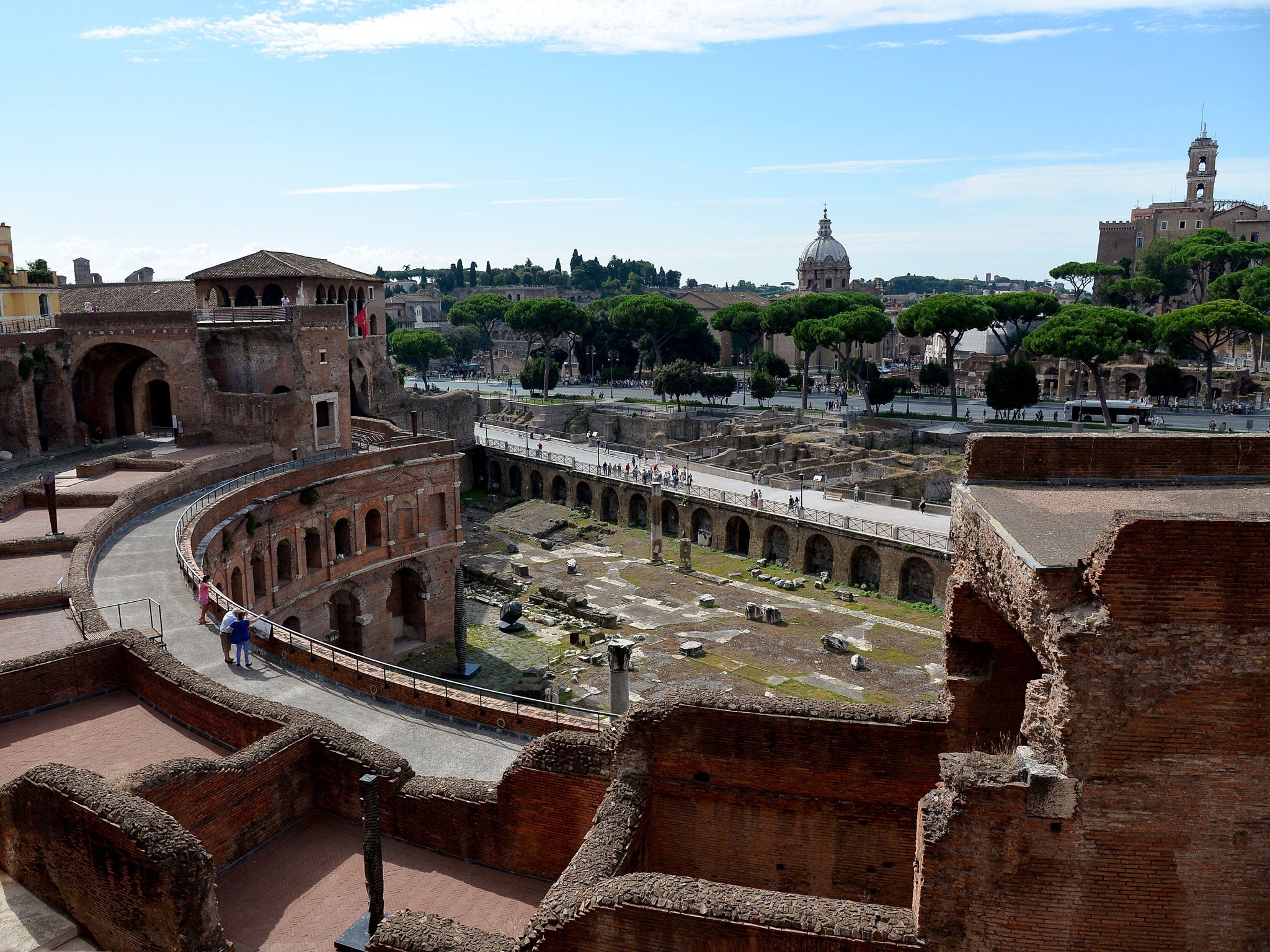SPQR: A History of Ancient Rome by Mary Beard, book review: An instant classic
Beard informs and entertains without ever patronising her readers

Your support helps us to tell the story
From reproductive rights to climate change to Big Tech, The Independent is on the ground when the story is developing. Whether it's investigating the financials of Elon Musk's pro-Trump PAC or producing our latest documentary, 'The A Word', which shines a light on the American women fighting for reproductive rights, we know how important it is to parse out the facts from the messaging.
At such a critical moment in US history, we need reporters on the ground. Your donation allows us to keep sending journalists to speak to both sides of the story.
The Independent is trusted by Americans across the entire political spectrum. And unlike many other quality news outlets, we choose not to lock Americans out of our reporting and analysis with paywalls. We believe quality journalism should be available to everyone, paid for by those who can afford it.
Your support makes all the difference.Ancient Rome, an awesome civilisation, big power. Know all about it. Archaeological finds, exhibitions, movies, plays, books, TV programmes and enthusiasts such as Boris Johnson have kept the stories going for an awfully long time. Another long Rome tome in a crowded market seems unnecessary. But this is Mary Beard, an accomplished scholar and lively debunker. She appraises the rise and fall of Rome, remakes the mosaics. Some established "facts" and dates turn out to be spin, whispers, afterthoughts and yarns. For example: Cleopatra couldn't have killed herself by putting an asp to her breast because: "Suicide by snakebite is a hard feat to pull off, and anyway, the most reliably deadly snakes would be too hefty to conceal in even a regal fruit basket."
Most academic books are opaque, written in words of clay. Beard informs and entertains without ever patronising her readers. What she touches turns to light. This book starts in 63BCE with Cicero – philosopher, orator and influential politician – and ends with the first millennium. Beard agrees that Rome underpins Western culture and politics today but avoids facile comparisons: "In some ways to explore the ancient Rome from the 21st century is rather like walking on a tightrope, a very careful balancing act. If you look down on one side, everything looks reassuringly familiar: there are conversations going on that we almost join, about the nature of freedom or problems of sex; there are buildings and monuments we understand, with all their troublesome adolescents; and there are jokes we 'get'. On the other side, it seems like completely alien territory."
The author delicately nudges us to think about our current crises as she considers Roman conversations (and angst) about national identity, asylum, democracy, empire, power, revolution, "barbarism" and conquest. By the middle of the first century BCE, the richest families lived in plush houses while the poor rotted in slummy, grim dwellings. The divide "had begun to raise the eyebrows of onlookers". Marcus Manlius, a fourth-century BCE rebel asked the oppressed many: "Quo usque tandem ignorabitis vires vestras?" ("How long will you go on being ignorant of your strength?") Our socialists today should, but don't dare ask that same rousing question. As Rome grew from a settlement to a town, foreigners, criminals and runaways were invited to become citizens. "[This] extraordinary openness and willingness to incorporate outsiders… set it apart from every other Western civilisation."

The diversity, some have concluded, drove the city's economic ambition and imperial success. Later when they conquered much of the known world, the Romans were brutal and xenophobic and yet, in time, the subjugated were offered full citizenship rights and legal protection. Expansive and elastic or restricted by nationalism? That is the choice faced by Britain and Europe today.
SPQR is pacy, weighty, relevant and iconoclastic. Who knew classics could be so enthralling? Lucky are the students of Mary Beard.
Profile Books, £25. Order at £22 inc. p&p from the Independent Bookshop
Join our commenting forum
Join thought-provoking conversations, follow other Independent readers and see their replies
Comments